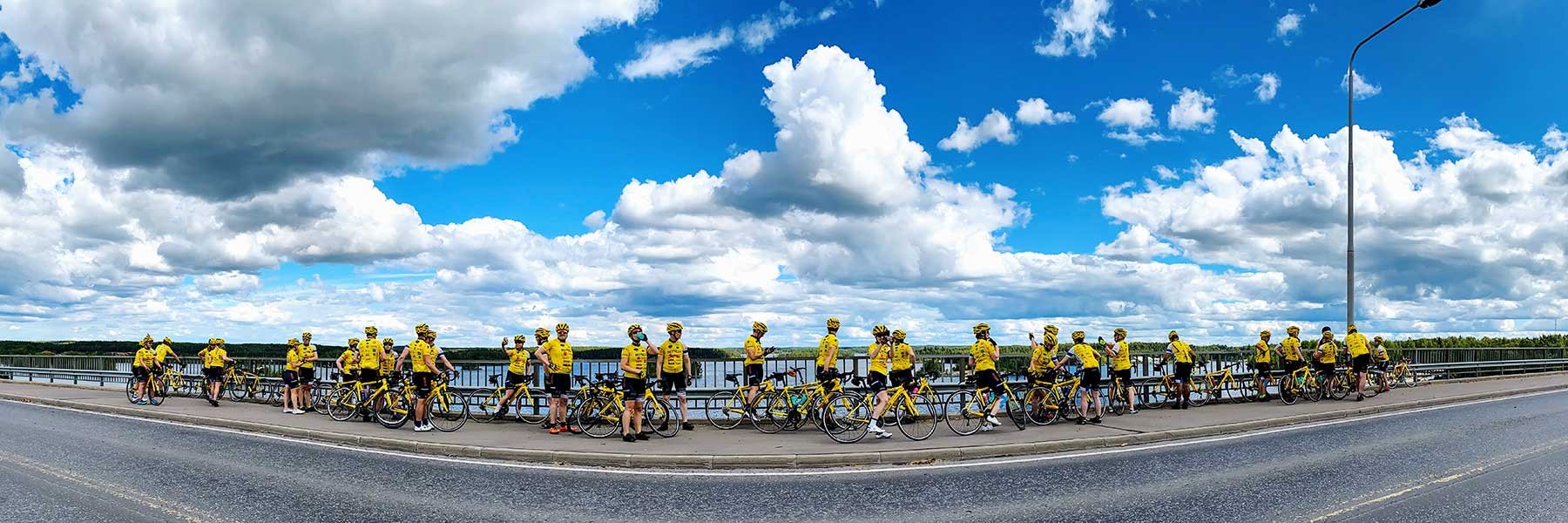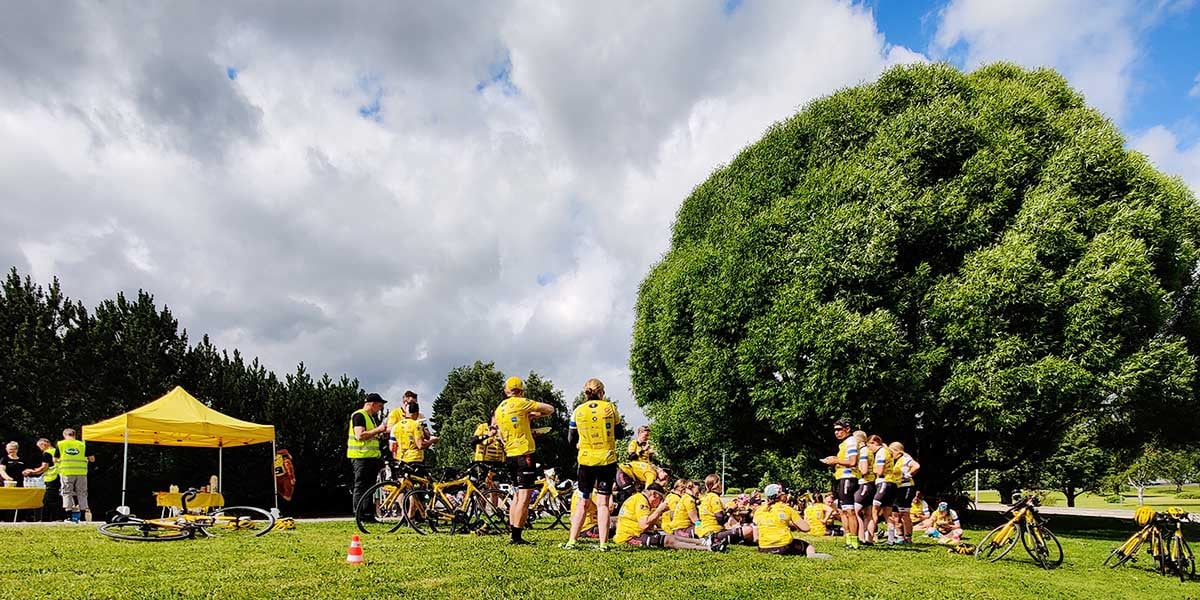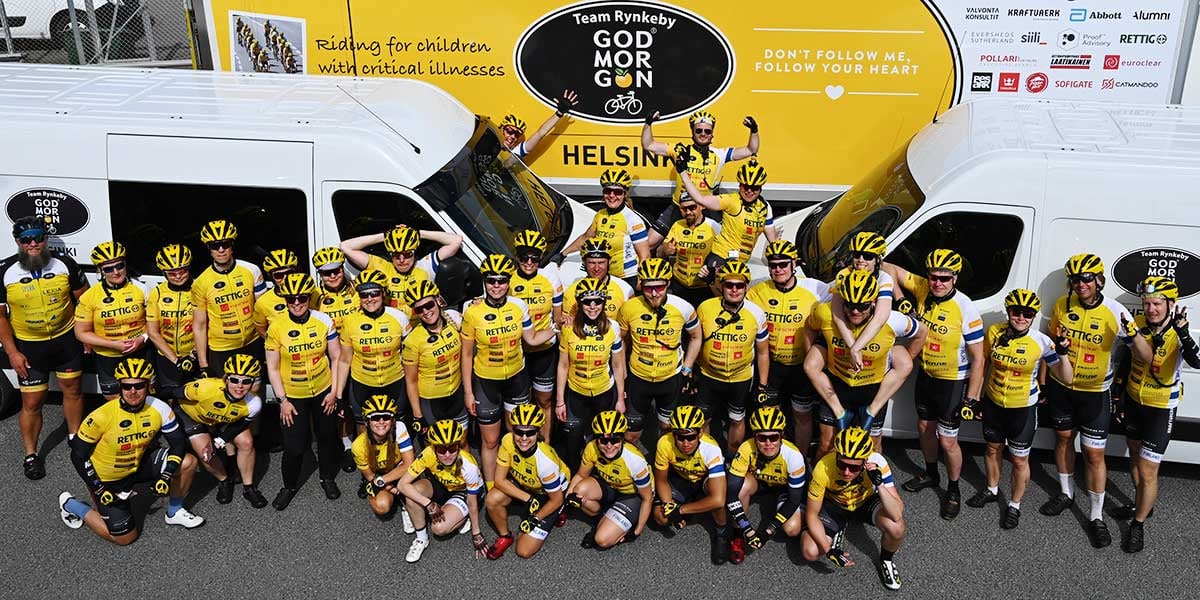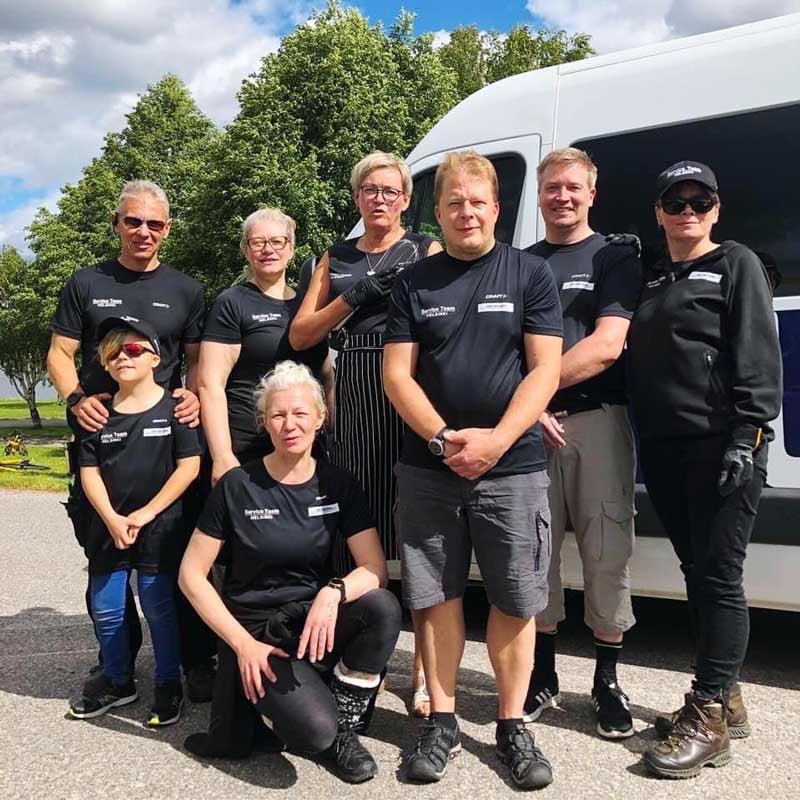Blog
By Markus Laurén on Sep 4, 2020 11:12:00 AM
Data Engineer in the Support Crew of a Charity Bike Ride
At the turn of July and August, the Team Rynkeby - God Morgon charity bike ride took place, raising funds to support children with cancer. This year, instead of the usual ride to Paris, the event was transformed into a "Tour de Finland." Eight teams cycled various routes across Finland, with the Helsinki team covering 1,200 kilometers. In total, about 200 cyclists participated in this charity bike ride.

As a Data Engineer at Cloud1, my day job involves technical and analytical tasks, but with Team Rynkeby, my role was to ensure the well-being of cyclists in the Helsinki team's support crew. My experiences could also be followed on Cloud1's Instagram account, which I took over for the duration of the event.
A demanding day job sometimes requires complete detachment, and participating in the Team Rynkeby charity bike ride truly offered that. Long days were filled with taking care of cyclists' breaks and meals, transporting supplies, facilitating bike maintenance, and preparing for the next day. This involvement not only provided a break from the routine work life but also contributed to a noble cause, blending professional skills with personal passions and community service.

In the support crew, every piece had its clear role and objective. The front team managed snack stops, a cold truck carried food supplies, and rear support followed the pack, ensuring the safety of the cyclists. Team members self-organized effectively to ensure everything was executed smoothly. Amid the hustle, the need for smooth and efficient communication was emphasized: everyone needed to be on the same page about current activities and next steps. The day was wrapped up with communal "campfire" meetings, where feedback, challenges, and successes were shared and discussed.
Although the nine-day stint in the support crew was taxing in its way, it was also an unforgettable and rewarding experience. The strong sense of community and spirit of working together left a profound impression. All participants were highly motivated, and their desire to perform their best was evident in all aspects. It was remarkable to see how quickly around 50 participants of varying ages and backgrounds came together to function effectively towards a common goal.

Can these lessons be generalized? Possibly. Team Rynkeby certainly illustrated that successful teamwork often boils down to strong motivation, clear communication, well-defined tasks, and immediate feedback. These elements are essential in successful team collaboration, whether it’s in the context of a cycling support crew or IT projects.

